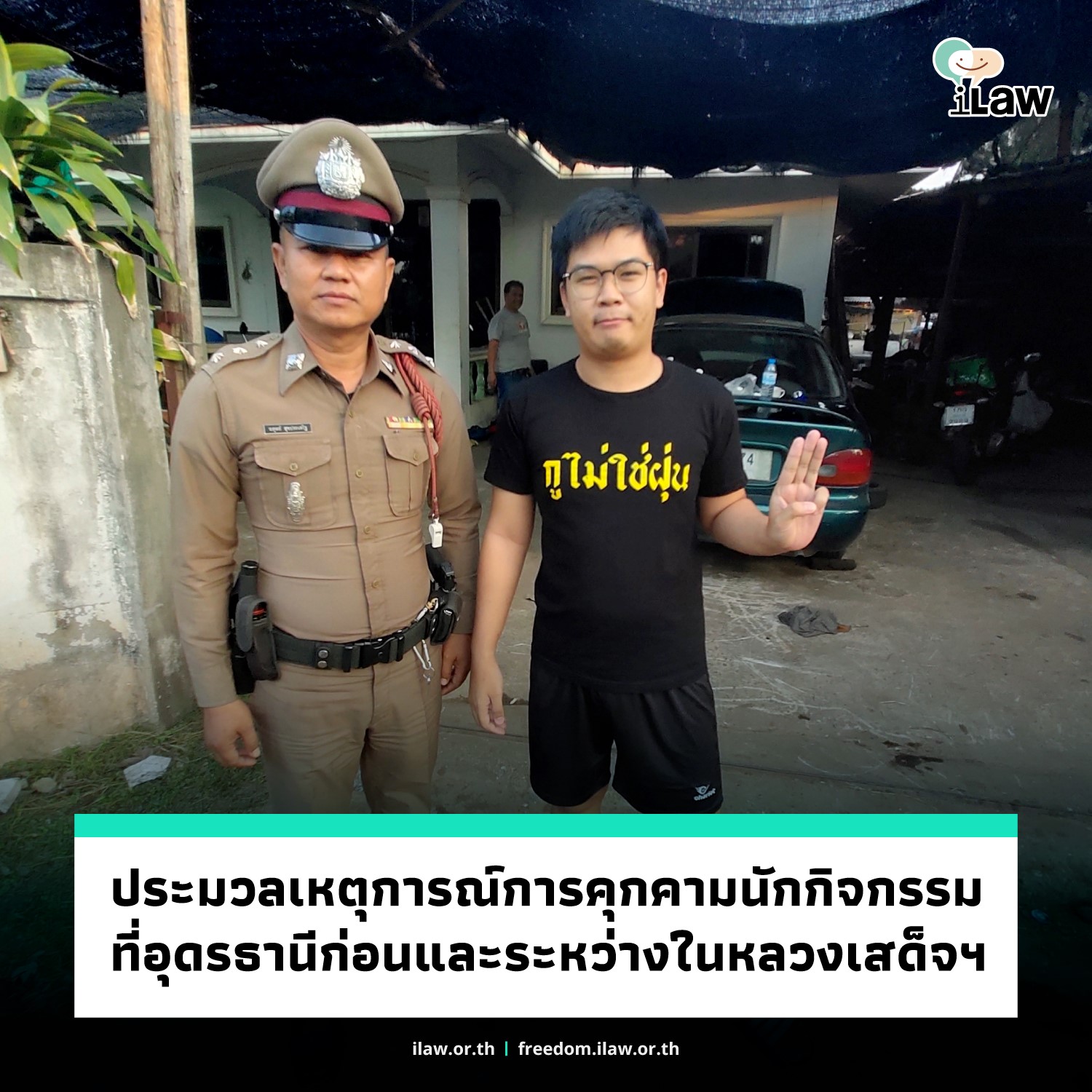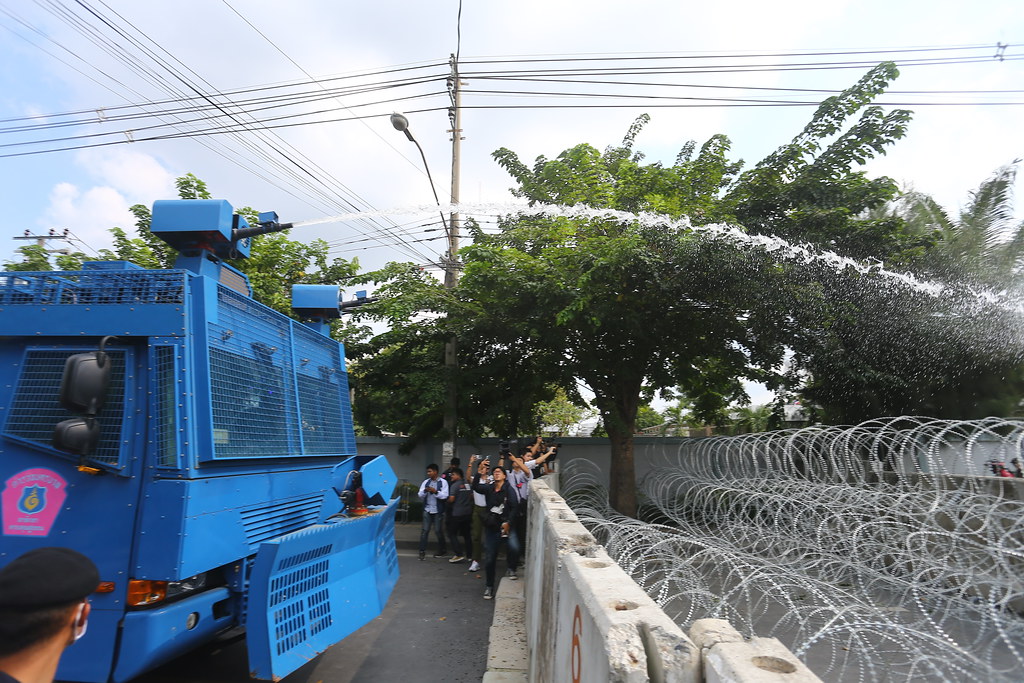Overview of public assembly
There have been at least 43 public assemblies countrywide during 8 – 21 November 2020 including at least 12 in Bangkok and at least 26 in the province. Meanwhile, the yellow shirts have organized at least seven public assemblies. The past two weeks saw a decrease in the number of public assemblies compared to the previous two weeks which saw at least 77 assemblies countrywide. In terms of major incidences, during 17-18 October, the Parliament was convening a special session to review seven Draft Constitutional Amendments including the one supported by the people’s sector. As a result, “Free People” Group (Khana Ratsadon) thus called for a public assembly in front of the Parliament (Kiak Kai intersection) to put pressure on the Parliament to accept to review the Draft Constitutional Amendment proposed by the people’s sector. Meanwhile, the Royalist group who objects to the acceptance of the Draft Constitutional Amendment also called for a public assembly at the same place and on the same day, which has eventually led to a clash of the two groups.
In addition, while a parliamentary debate on the Draft Constitutional Amendment proposed by the people’s sector was going on, the police forcibly dispersed the public assembly led by Khana Ratsadon by firing water cannon with dyed and irritant at the protesters causing a number of injuries. Recorded more than 6 people were admitted to hospital led from severe injury and severe burnt from the irritant. The crackdown on the assembly angered the protesters prompting them to escalate their action to express themselves symbolically by painting graffiti to criticize the monarchy in a more direct manner. On 19 November 2020, a statement from the Prime Minister was released which essentially said that “Therefore, it will be necessary for the government and the concerned security agencies to enhance our measures by enforcing all the pertaining laws against protestors who violate the law or infringe upon the rights and freedoms of other citizens. This will include prosecutions in accordance with the country's judicial system, which are in accordance with international standards and practices.” The statement can be interpreted that the government is about to use Lese Majeste law, the Penal Code’s Section 112 against the people after a hiatus during the interregnum.
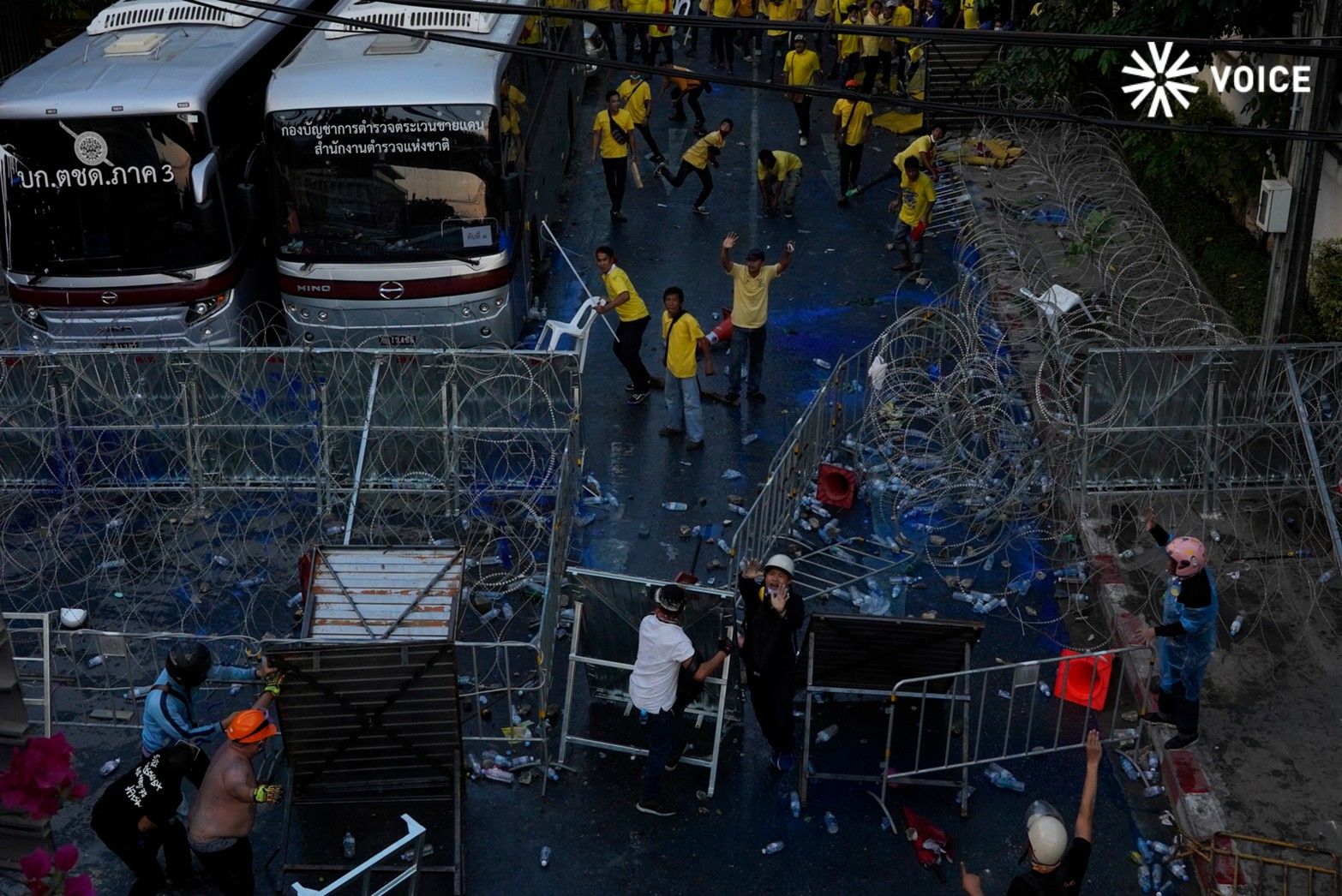
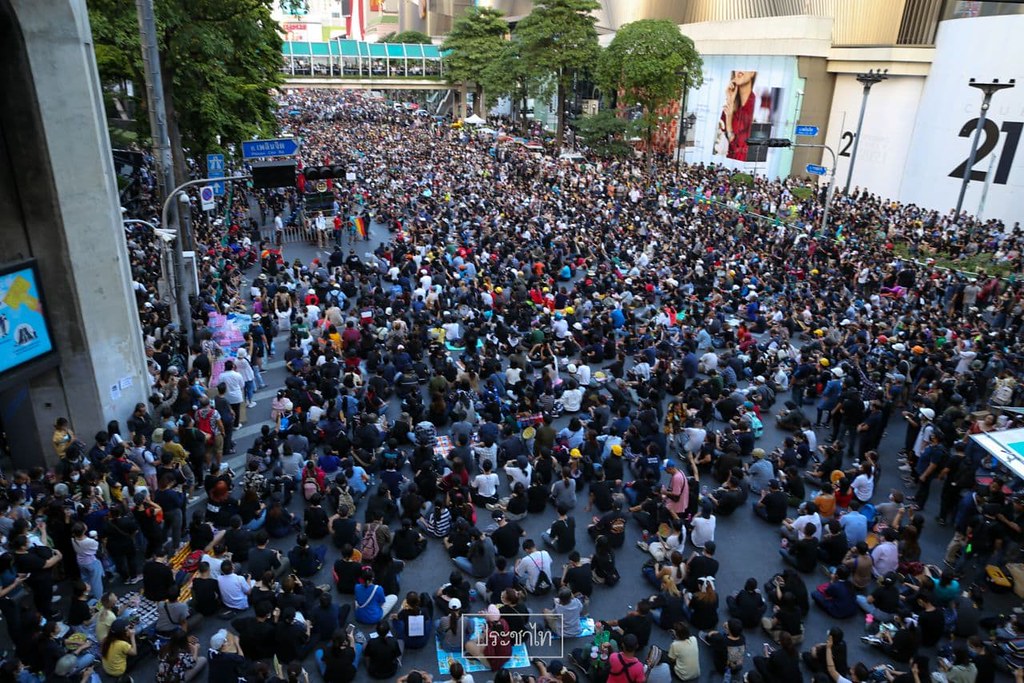
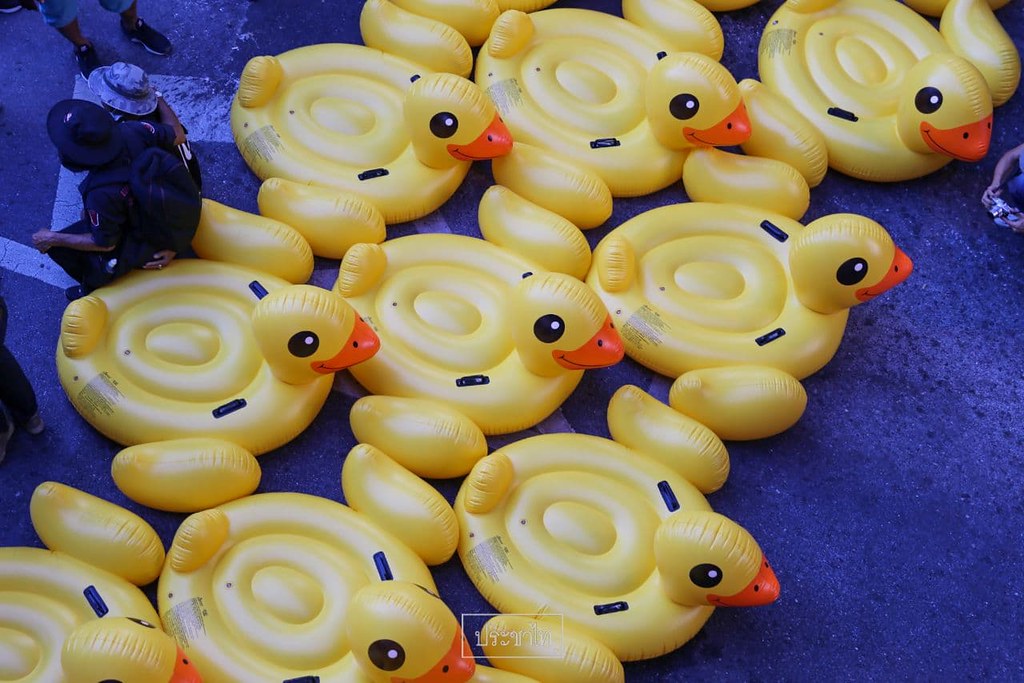
More diverse demands, but no concession on main demands
At least 38 public assemblies throughout the country from 8-21 November saw more diverse demands, although no concession has been made on the main demands of the Khana Ratsadon including the constitutional amendment, the removal of Gen Prayut as Prime Minister, and the monarchical reform. Meanwhile, at least seven public assemblies were organized by the Royalist demonstrators opposed to monarchical reform and the constitutional amendment. New demands have been made in response to the evolving political situation. For example, in the wake of violent crackdown on the Khana Ratsadon’s public assembly on 17 November in front of the Parliament (Kiak Kai), it has led to various public assemblies organized in other places to show their anger including the one on 18 November in Chiang Mai where at least 100 protesters marched toward the Muang Chiang Mai Police Station to “press abuse of power charge against the police” as a result of the use of water cannon, teargas, and rubber bullets against the protesters at Kiak Kai Intersection causing injuries and damage to property. In Phetchaburi, the protesters held a ceremony to curse public officials and the mastermind behind the violent crackdown against the people. In Bangkok, more than 30,000 people were gathered at the Ratchaprasong Intersection.
In addition, during several public assemblies, we ran into various other demands or campaign issues including on 12 November in Maha Sarakham, the Student Alliance of Maha Sarakham and the Coalition of Students of Maha Sarakham University declared their “resolute opposition to the reconciliation committee” formed by the government. On the same day at the Victory Monument Skywalk, the Khana Ratsadon organized an activity “How would you like to see rural area developed?” where members of the public were invited to write post-it messages. On 14 November, the Bad Students organized a public assembly to “protest against and oust Minister of Education Nataphol Teepsuwan” given his inefficient performance. And on the same day, various groups organized Mob Fest at the Democracy Monument to “demand constitutional amendment” during which various political issues and rights were raised. On 19 November in Chiang Mai, a march was held to raise public awareness on “Issues concerning land and forests in Thailand” to mark the 46th anniversary of the establishment of the Peasants’ Federation of Thailand and declare their support for land distribution with fairness.
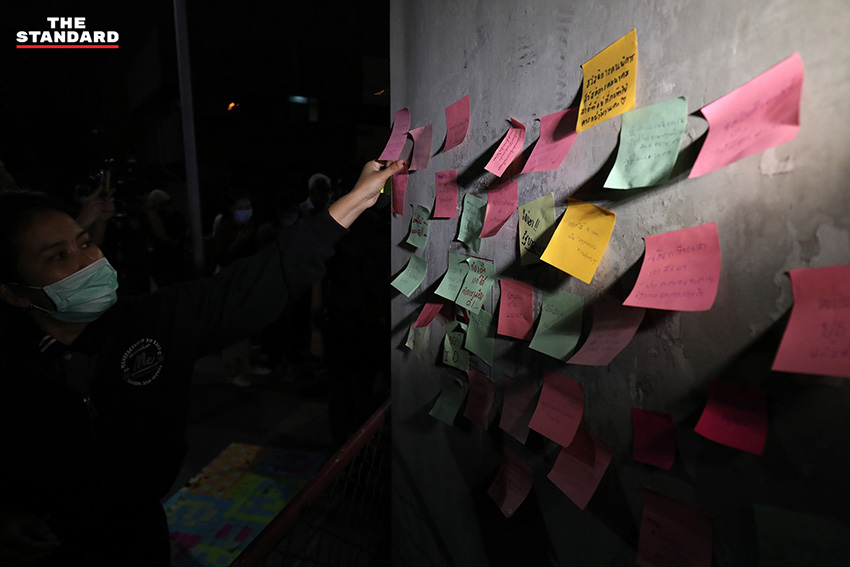
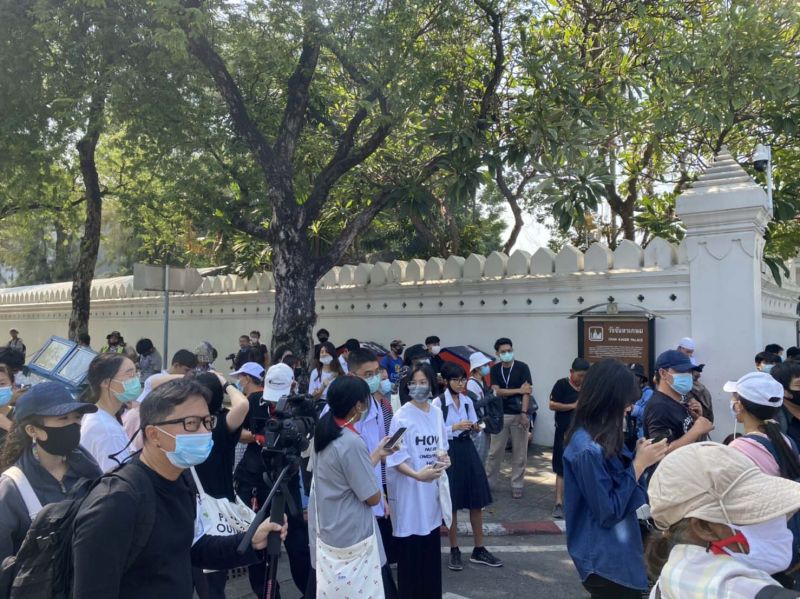
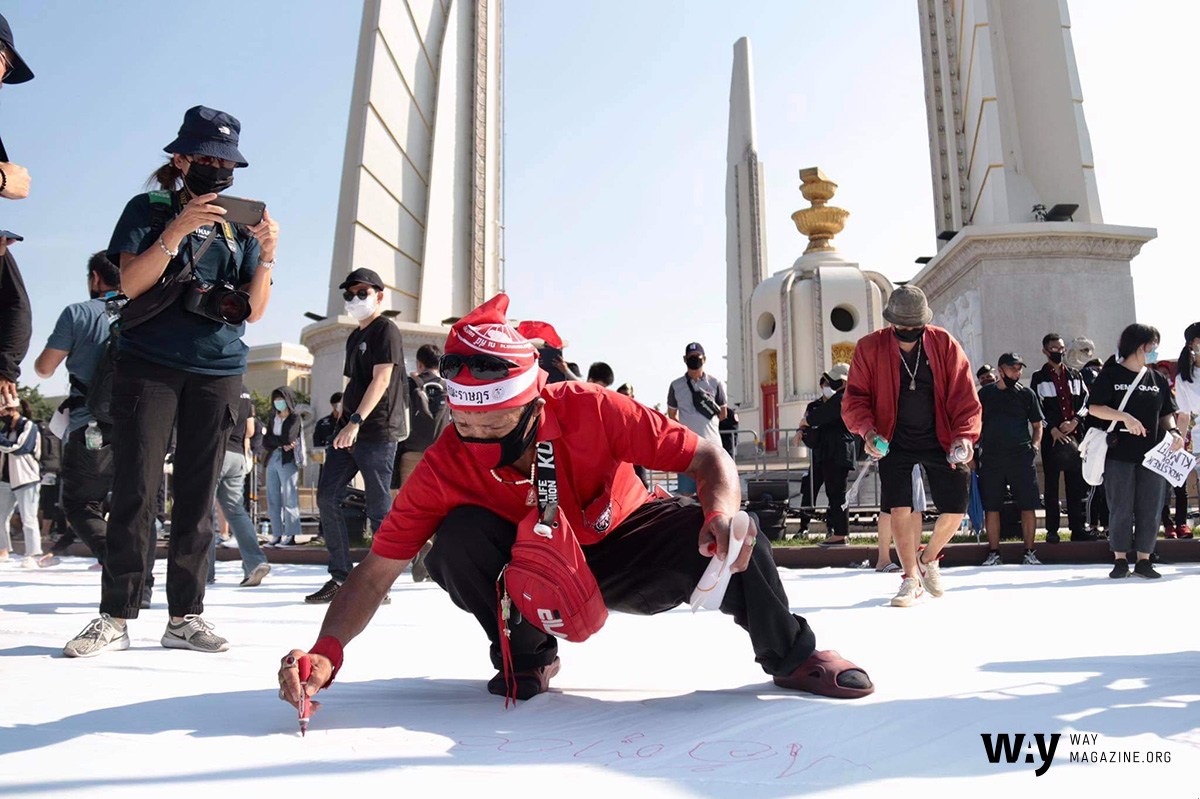
Harassment: Violence stemming from the crackdown on the public assemblies
1. Excessive violence causing injuries
During the two public assemblies from 8 – 21 November, some protesters got injured. First on 8 November 2020, the Khana Ratsadon organized a public assembly to send letters to His Majesty the King at about 18.00 in front of the Supreme Court. As the protesters were attempting to move busses put there as blockade by the police and to beat the police cordon to get to the Grand Palace, a chaos ensued as water cannon was fired at them for one or two minutes prompting some people to find their refuge in Sanam Luang and causing a tense standoff. Some people were overcome by their anger and started to hurl objects including water bottles against the police. The protesters’ security guards tried to talk them down and to put the situation under control. They formed a cordon to push the protesters away from the police line to reduce the tension. After about five minutes, peace was restored, and the security guards asked the protesters to sit in Sanam Luang while the police promised to not fire water cannon again. Mob Data’s observers reported that six persons got injure during the melee including four protesters and two guards. They sustained minor injuries from being hit by water cannon. No one suffered from serious injuries which warranted hospitalization.
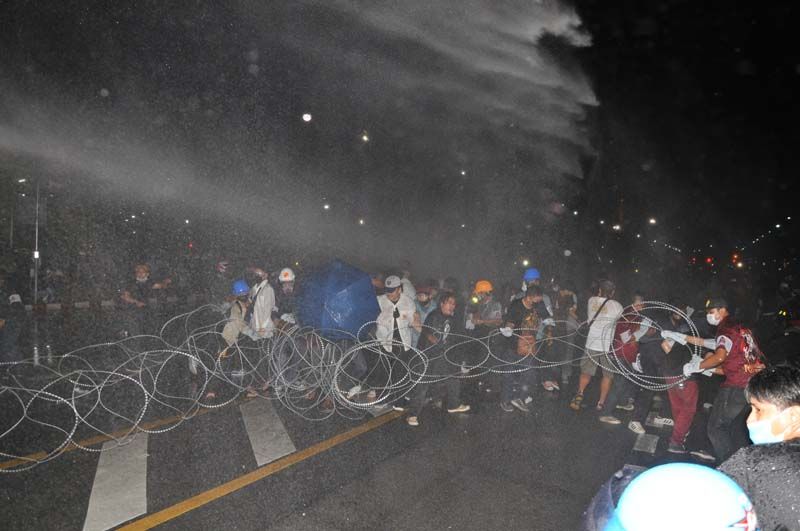
Second on 17 November 2020 when the Parliament was about to read and vote on the seven Draft Constitutional Amendments including the one proposed by more than 100,000 people. Khana Ratsadon planned to organize a public assembly in front of the Parliament, but they were not able to move into the intended area due to police blockade. The protesters attempted to move through the barricades by dismantling barbed wire. Around 14.00, the situation became tense as the police started to fire teargas laced water cannon and teargas to disperse the public assembly. The police fired water cannon and teargas for about five hours in total. Vajira Hospital reported that altogether 18 persons injured during the dispersal of the public assembly were admitted for treatment including 12 men and six women. Most of them were affected by the use of teargas, sustained bodily wounds being exposed to barbed wire, being hit by water cannon and one protester sustained a head wound. Some of them have already been discharged from hospital In addition, altogether 28 persons got injured during the clash between the Khana Ratsadon protesters and the yellow shirt demonstrators.
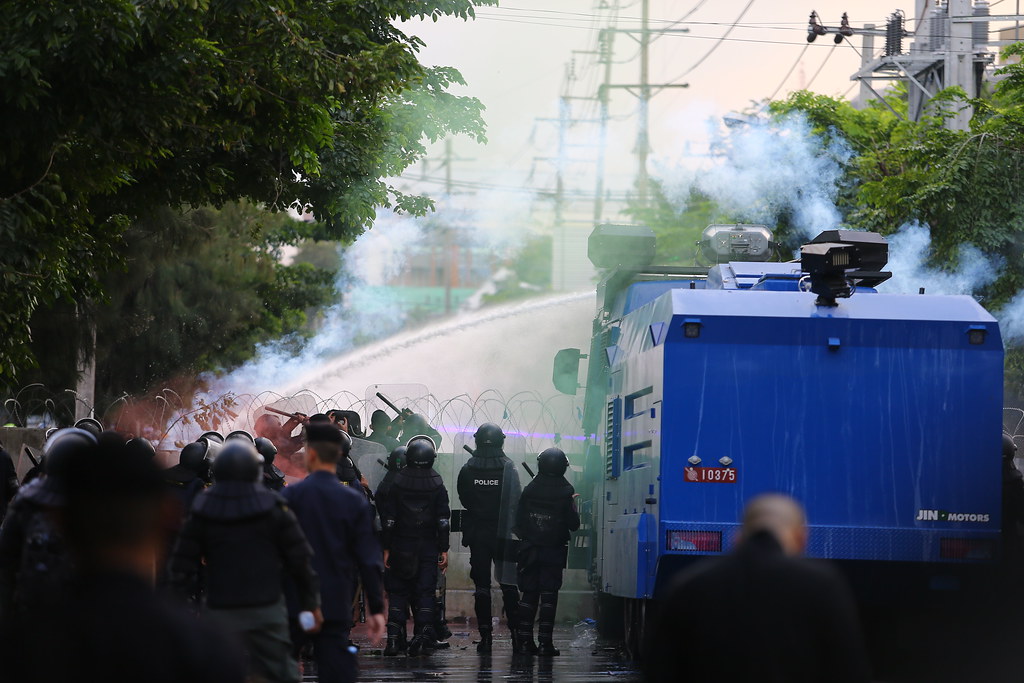
On 17 November, the police fired teargas laced water cannon and teargas to disperse the public assembly, organized by Khana Ratsadon in front of the Parliament. Photo by Mob Data Thailand
2. Protesters facing unrelenting prosecution
There has been an onslaught of demonstrations countrywide from 8 – 21 November, Meanwhile, 24 individuals have been charged in relation to the demonstrations, mostly for violating the Emergency Decree, 13 for violating the Declaration of Serious Emergency Situation and 12 for violating the Public Assembly Act. Most of the accused are protest leaders from Bangkok including Parit Chiwarak, Anon Nampha, Atthaphon Buaphat, Thatchapong Kaedam, and Suwanna Tallek, etc. At the same time, demonstrators in the province have been charged as well including in Chiang Mai where Puengboon Jaiyen, is accused of “insulting public officials” after hurling expletives at the police during public assemblies, or in Chiang Rai where an owner of coffee place who helped to moderate a student-led demonstration, the #WiangPaPaoPeopleDislikeDictators and has been summoned to hear charges concerning failure to notify the authorities before holding a public assembly, even though he did not initiate the event. In addition, it has been found that two minors under 18 years old have been slapped with charges as a result of their participation in political assemblies.
3. Surveillance and visiting protesters at home
The surveillance and visits to homes of protest leaders continue unabated, particularly on 10 November when Their Majesties the King and Queen were scheduled to lay foundation stone and to open a new building of the Udonthani Juvenile and Family Court. As a result, at least 11 high school and university students who used to attend public assemblies in local area became a target of police surveillance. The police either called them or paid them a visit to their homes or their schools. In other areas including Chiang Rai, Uttaradit and Burirum, the protest leaders have been visited at home and told not to participate in the public assemblies as a result of which some protesters dared not leave their homes.
